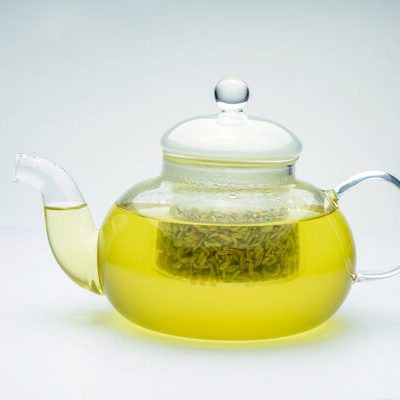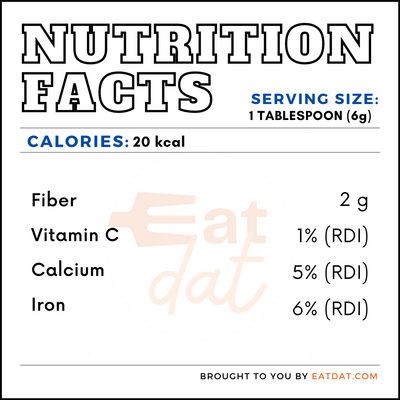
Fennel Tea
What is Fennel Tea?
Fennel tea is a drink produced by boiling fennel seeds in water. Fennel seeds have an oval shape and come from an aromatic plant called fennel, also known as Foeniculum vulgare, which belongs to the carrot family. When the seeds are dried, they have a greenish-brown color, but as they mature, this color changes to gray.
- Fennel seeds have a taste that is similar to licorice.
- The process of boiling the seeds in water causes the volatile oils from the seeds to be absorbed in the water, giving the tea its special aroma and flavor.
The top 10 best fennel seed brands on the market are:
- Jiyan Food Ingredients
- Egytrade
- Sino-Nature International Co.
- Catch
- Cook Me
- Malek Farm
- Pushp
- Simply Organic
- Feliks
- Surajbala Exports
Origin of fennel tea
Fennel has its origin in the Southern Mediterranean region, although it germinates in the wild in Asia, Europe, and North America. The ancient Chinese, Indians, Romans, and Egyptians were all familiar with this herb. The Romans valued the seeds primarily for aromatic purposes. Charlemagne, an emperor, encouraged the cultivation of fennels in Central Europe, leading to its widespread use there. This aromatic plant remains popular in Italian and French cuisines to this day.
Function
The various parts of the fennel plant have different uses. First of all, the fronds of this plant can be used as a garnish. Also, fennel bulbs can be useful in salads or cooked vegetable dishes. Not to mention, fennel stalks can serve as a substitute for celery in stews and soups. Last but not least, this plant’s seeds are wonderful for making this delicious tea.
Nutrition
One tablespoon (6g) of dried fennel seeds contains:

Fennel tea has some valuable health benefits, which include:
- It might be able to relax your muscles and help you sleep.
- This drink contains antioxidants that can fight oxidative stress in the body.
- It can help to cure bad breath due to its antibacterial properties.
- This tea may help treat flatulence, diarrhea, or any other digestive issues.
- It can fight against microbial agents invading your immune system.
However, this tea does have some side effects. For instance, pregnant women should stay away from drinking fennel tea. The estrogen present in the oil of fennel seeds is not suitable for pregnancy. If you have any allergy to carrots or any food in that family, avoid consuming this tea. Also, if you have a blood disorder, you should be careful with drinking fennel tea.
Commercial production
Italy was the largest producer of fennel in 2015. The two basic types of fennel are vegetable fennel and herb fennel. Herb fennel is used for the production of fennel tea.
A cold and dry climate favors the production of fennel. Any soil that is rich in organic matter will be ideal for this plant, except shallow sandy soils. Irrigation and weed control is essential for the growth of this plant. Once the plant is harvested, its seeds are extracted and left to dry. After they have dried, they can be packaged for loose leaf tea or sent on for further processing.
Application
You can either use a teabag, dried fennel seeds, or powdered fennel to make fennel tea. If you are going to use a teabag, follow the steps below:
- First, boil some water.
- Then, place the teabag in a mug or cup.
- Finally, pour the boiling water into the mug and let it steep for about five minutes.
If you want to use powdered fennel for this tea, simply pour the powder into a cup of hot or cold water. For fennel seeds, crush the seeds first with a mortar and pestle or a coffee grinder. Add one tablespoon of the crushed fennel seeds into a tea infuser and allow it to steep in boiling water for a few minutes.
Fennel tea recipes
This tea blends perfectly with most ingredients. Some top-rated recipes to try include:
- Fennel Tea
- Fennel Tea with Ginger and Lemon Verbena
- Cinnamon and Fennel Seeds Drink
- Fennel Nettle Iced Tea
- Saunf Wali Chai
FDA regulation
The Food & Drug Administration regulates the growing, harvesting, and overall production of fennel. The body classifies this substance as a raw agricultural commodity. They recognize fennel seeds as a spice, flavoring, or natural seasoning. A spice is defined as an aromatic vegetable substance in its whole, broken, or ground form whose purpose in food is to serve as a seasoning. It is safe for any of its intended uses.
References
Watson, Kathryn. “Fennel Tea: Benefits, Health Information, and Side Effects.” Healthline, Healthline Media, 29 Sept. 2018, www.healthline.com/health/fennel-tea.
“CFR – Code of Federal Regulations Title 21.” accessdata.fda.gov, US Food & Drug Administration, 1 Apr. 2019, www.accessdata.fda.gov/scripts/cdrh/cfdocs/cfcfr/CFRSearch.cfm?fr=112.1.
